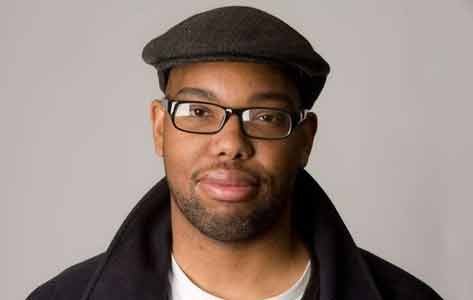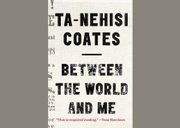Toni Morrison calls this book required reading, and it is. Even if it first germinated before the many police murders of unarmed African American boys and men over the last year, it could not have entered the cultural scene at a more fateful moment.
The book takes the form of a letter from Coates to his son, overflowing with mingled anger, despair and love, about the experience of growing up in a country where our foundational heritage is the ongoing freedom of whites to kill blacks with impunity. This injury is complemented by the insult of hundreds of years of rank economic injustices extending back to the origins of our “exceptional” political experiment, conceived, with due respect for their good intentions, by slaveholding white men.
To define whiteness, Coates uses the provocative phrase “people who believe they are white,” by which I take him to mean that there is a negative part of some of us that needs to feel superior to, and therefore also fearful of, some “lower” order. No peak without a valley. The pain caused by this illusory mis-identity is unfathomable.
After the latest mass shooting in San Bernardino, the African-American president of the United States spoke from the Oval Office trying to calm the fears of citizens anxious about the random terror of ISIS. He appealed to our best tendencies: “We were founded upon a belief in human dignity that no matter who you are or where you come from or what you look like or what religion you practice, you are equal in the eyes of God and equal in the eyes of the law.” While acknowledging the reality of terrorism, he cautioned against separating Muslims and non-Muslims into a stereotypical “us and them.” Because “us and them” sadly forms a big chunk of our only partly acknowledged heritage, Obama was immediately attacked by presidential candidates of the opposing party with the fear-mongering version of our national identity.
The violence of ongoing exceptionalism, built upon so much insufficiently processed history, continues to assume grotesque forms. Sadly, the Senate cannot even pass a bill that forbids people on terrorist watch lists from buying weapons because the National Rifle Association has such a powerful lobby. What are the roots, if not raw fear of the “other,” of this white obsession with the Second Amendment?
At my Ivy League college 50 years ago, the hundred or so young white men with whom I shared meals were served by a group of young black men in white coats. Did we speak a friendly word to them? Did we see them as people with the same potentialities as ourselves? We did not.
Now I have become part of a family where I have four mixed-race adoptive grandchildren. My love for them is just as fierce and fearful as Ta-Nehisi Coates’s for his son. Suddenly, it is of more than the academic interest that the oldest of my four is approaching the adolescent moment when he will start to look dangerous to the police.
The knotted heritage of our nation cannot be loosed by the descendants of slaves who endured it and endure it still. Instead the knot must be newly owned by those who have too long disowned it; can we who think we are white emerge from the dreamy pretension of our effortlessly assumed privilege? Can we admit that our perverted form of exceptionalism has cut a swath of destruction not only through our national history but also through such diverse haunts of otherness as Vietnam and Iraq?
Those who think they are white came to wherever they are now by free migration not by slave ships, out of the common pool of all humans from the savannas of Africa. In that shared origin story may reside some hope of post-racial— or post-religious for that matter— interrelationship among equals. Meanwhile, we have Coates’s authentic cry of the heart from which to learn and grow.
Winslow Myers, syndicated by PeaceVoice, is the author of “Living Beyond War: A Citizen’s Guide.” He also serves on the Advisory Board of the War Preventive Initiative.

